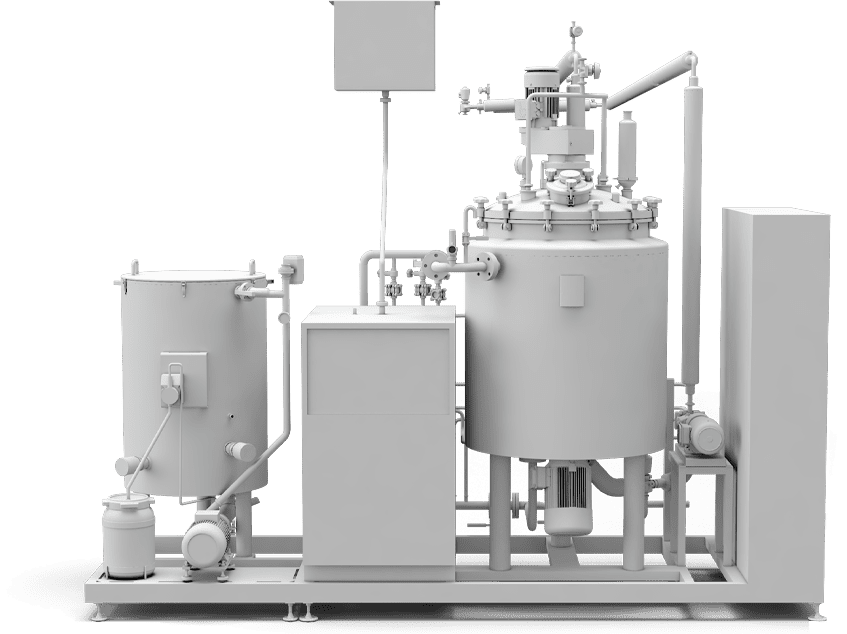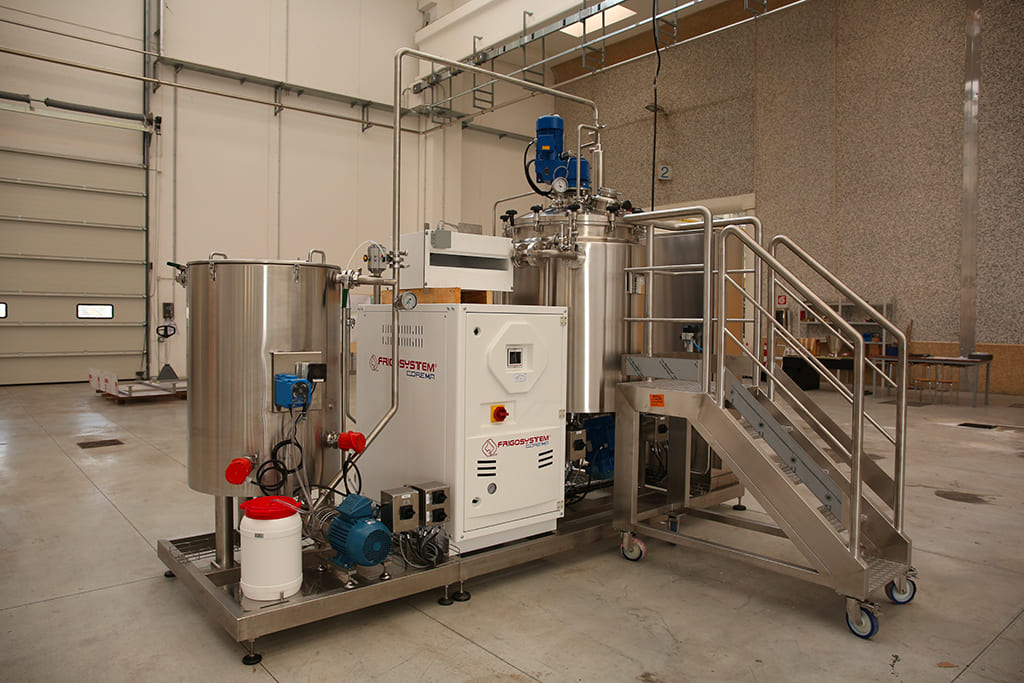Cream, Gel and Suppository

The engineering behind high-viscosity products
-
Anchor mixer
Applied to handle and mix high viscous products and non-Newtonian fluids
-
Bottom homogenizer
To make the product smooth and to keep it stable
-
CIP on integrated skid
A “plug-n-play” plant: process and sterilization on all-in-one skids

-
Complete Solutions
Cream, gel and suppository plants have to daily handle high-viscosity products. The engineering has to therefore take into account the physical characteristics of the product and the interaction of the various ingredients, in order to design a plant which will produce a smooth and stable drug or cosmetic. To this extent, top mounted agitator and high-speed homogenizer are usually applied. Temperature Control Module is fundamental too, because it allows to melt excipients – where the API is added, to keep the temperature stable and to have a full control of temperature settings.
Ideally the plant has to be equipped with a CIP station, where acid and base additions can assure the cleanliness of vessels and distribution piping.
-
Explore
Suppository is an alternative drug delivery, for those drugs not well absorbed through stomach, for example. The manufacturing process consists in melting a base composed of excipients (glycerol-gelatin or polyethylene glycol, for example), adding active ingredients. The compound is poured into the mold and is later subjected to cooling.
On the other hand, cream is topical medication, formulated either as oil-in-water or water-in-oil emulsion, containing emollients, lubricants, thickening agents and active principle, of course.
For these kinds of formulation, several problems can arise during the process, such as agglomerations, clumps on walls of the vessel or on the agitator, non-stable emulsion.
Thus, the right equipment is crucial to guarantee quality products, repeatable in process, with no clumps and stable.
